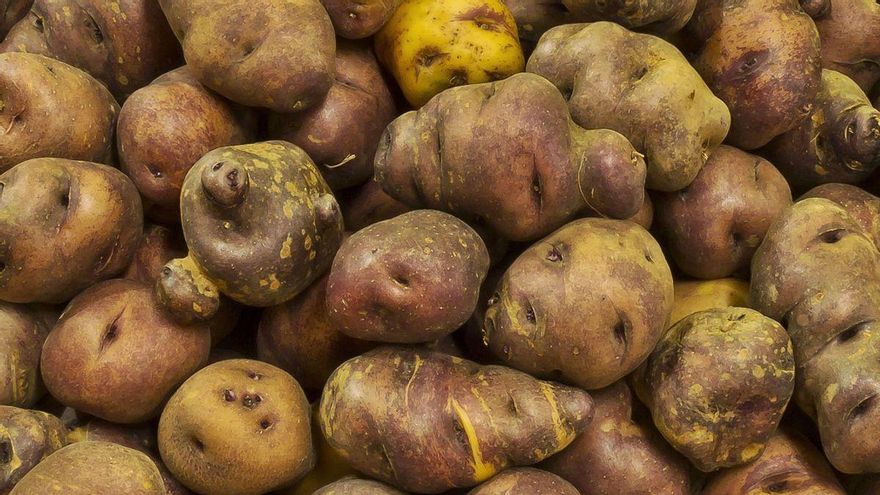
The councilthrough the primary sector council, launches a package of measures worth €158,630, to promote the consumption of local potatoes and improve storage and distribution quality. Among the actions planned, a promotional campaign and the development of training actions stand out.
The island councilor for Agriculture, Livestock and Fisheries, Javier Parrilla, values the commitment to promote the consumption of local products. “The objective -he details- is to ensure that the population as a whole knows and values the products of our primary sector that guarantee the well-being of hundreds of families and contribute, in a decisive way, to conserving the landscape and the sustainable development of the territory”. Parrilla expresses it clearly: «I will never get tired of saying that a local product is not expensive, but that it is worth what our people are worth”.
The counselor emphasizes that “if the pandemic has shown us anything, it is that we cannot turn our backs on the agricultural sector, a strategic activity for Tenerife and the Canary Islands.” He values: “We must be grateful to our farmers because they feed us, something so important.”
The campaign includes advertising in digital media and local and regional radio until July 31. There are also billboards planned between July and September, as well as four fairs linked to the consumption of local products and focused on the potato. The first took place this month in Fasnia and the next ones will take place in July, September and January in Puerto de la Cruz, Icod el Alto and Adeje, respectively.
The Cabildo will allocate 114,750 euros to the purchase of 1,500 chests of drawers of plastic to try to alleviate the storage problems faced by cooperatives, essential to extend the life of the potato in optimal conditions. Finally, consumption will be promoted through the Agromarket Network. There will be training workshops so that the collectors know the collection criteria, in order to avoid losses and waste (waste for sale).
The potato is the third most important crop on the Island, behind the vineyard and the banana, although in the mid-range areas it has greater economic relevance. Average yields stand at 18,000 kilos per hectare and in 2020 43.1 million kilos were produced on the Island. Ten were marketed through cooperatives, two through Mercatenerife and the rest through various marketing channels.
In recent years, productivity per hectare has increased, thanks in part to improvements in irrigation systems, which have offset losses from drought and damage from the Guatemalan moth.
















